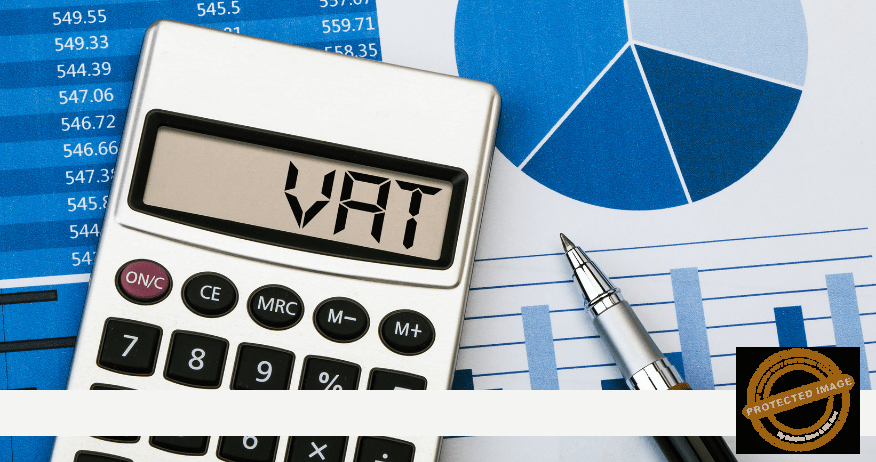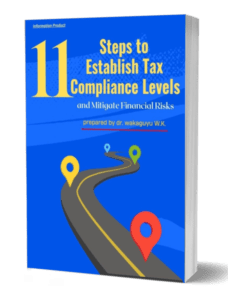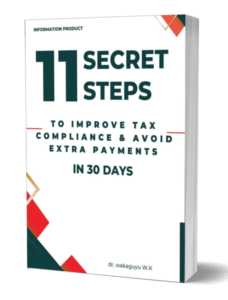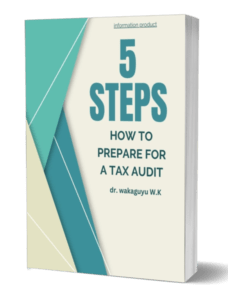Cancellation of the VAT Registration is covered by the VAT ACT (2013) Section 36 as at the time of writing this post. Sometimes, for various reasons, taxpayers should be removed from the list of taxpayers who are expected to charge for VAT in Kenya.
Table of Contents
Currently, many taxpayers in Kenya should not be on the list of persons expected to charge VAT according to the VAT Act (2013). This initiative is either from the taxpayer who applies for VAT cancellation or the Commissioner cancels the VAT obligation in the personal identification number (PIN) certificate.
Taxpayer's initiative to cancel the VAT registration
The concerned taxpayer will apply for the cancellation of the registration in writing to the Commissioner detailing the reasons for the application.
The VAT Act lists two reasons why a taxpayer can apply for cancellation of the VAT registration:
- The person ceases to make taxable supplies.
- The person makes taxable supplies, but the turnover in the last 12 months is lower than the stipulated threshold of Kshs 5 million (Note: this figure may be changed in the future – consult KRA Website for the latest threshold amounts.)

Cessation of taxable business
When a business ceases operations, the application must be done within 30 days from the date the person ceases to make taxable supplies.
Here, the business is no longer in operation. There are many reasons why a business can cease. Some reasons are the closure of business, sale of business and death of trade.
Other reasons are the death of the owner or owners, the legal incapacitation of the business, the insolvency of the business and the change of status to a partnership or limited liability company.
Low taxable sales
Here, there is no period within which the taxpayer can apply for cancellation of the certificate.
Under the VAT Act (2013) where a taxpayer has low taxable sales, they are required to will write to KRA seeking for the cancellation of the VAT certificate.
However, the taxpayer is expected to continue meeting their tax obligations until advised to stop doing so.
The Commissioner will look into the merits of each application and make a decision.
Commissioner’s decisions
The VAT Act (2013) gives the Commissioner powers to make two decisions.
- Decline the application – the registration is not cancelled and the VAT obligation on the PIN certificate is not removed.
- Agree with the application – The Commissioner is satisfied with the reasons advanced in the application and the VAT registration is cancelled and the obligation removed from the PIN certificate.
The Commissioner’s decision must be communicated to the taxpayer and must be in writing.
The Commissioner’s action is irrespective of whether the person was registered for less or more than 12 months.
Commissioner's initiative to cancel the VAT registration
The Commissioner will inform the taxpayer of the decision and/or the notice in writing. The Commissioner will take this initiative because of several reasons. In case the Commissioner is satisfied that the person does not:
- Keep proper records,
- Furnish regular and reliable tax returns,
- Comply with obligations under other revenue laws (income tax, excise duty),
The Commissioner will initiate cancellation of the VAT registration and especially if there are reasonable reasons that the person will not keep proper records or furnish regular and reliable tax returns. The VAT obligation will be removed from the PIN certificate.
Effective Date of VAT Registration Cancellation
The effective date of cancellation of VAT registration is the date specified in the cancellation notice. Currently, because of shifting tax communication to the i-tax platform, the notifications are online.
However, it is important to note that even after the cancellation of the VAT registration; the person is still liable for acts committed or omitted while registered.

Way Forward for VAT De-registered Taxpayer
There are several things that a VAT de-registered person must do.
- Cease to hold out as the VAT registered. They should remove all indications that they are VAT registered. Such indications will normally be in invoices, delivery notes, letterheads, tender documents, etc.,
- Submit a final VAT return and pay all due taxes within 15 days.
- Pay VAT within 15 days on any trading stocks on hand at the time of cancellation if input tax had been claimed (local and imported supplies).
De-registration Offences
There are several actions or inactions by a taxpayer that are considered offences under the VAT ACT (2013). The following are some offences.
- Applies for VAT certificate cancellation when still required to be registered.
- Fail to apply for cancellations of registration as required under the Act.
Fine for failure to apply for cancellation of VAT registration
The VAT Act (2013) Section (37) stipulates that a taxpayer who fails to apply for de-registration commits an offence and is liable for conviction to a fine of less than Kshs 200,000 or a jail term not exceeding 2 years or both.
Conclusion
De-registration of VAT is in writing and done online. The cancellation of the VAT registration is initiated by the taxpayer, who:
a) ceases to make taxable supplies or
b) the turnover of taxable sales is less than Kshs 5 million
or
By the Commissioner for:
a) failure to make returns,
b) maintain records
c) there are reasonable reasons that the person will not maintain records.
The taxpayer remains liable for any outstanding tax liabilities and/or actions while registered.
Thank you for reading this post. Let us know your thoughts in the comments.
Dr Wakaguyu







